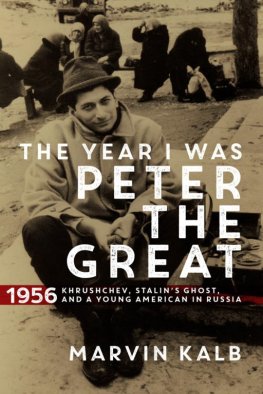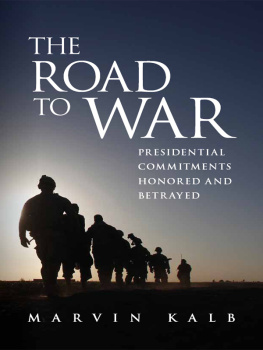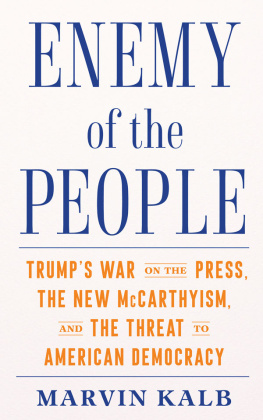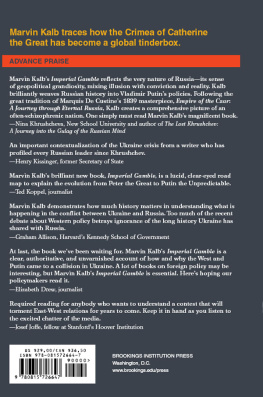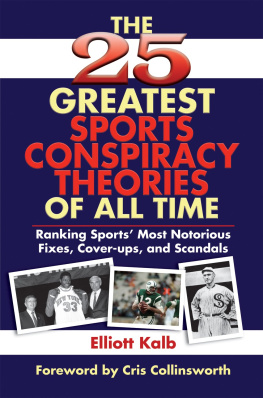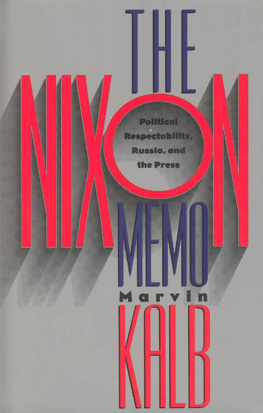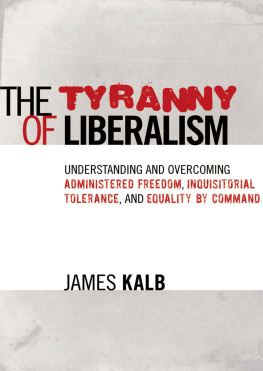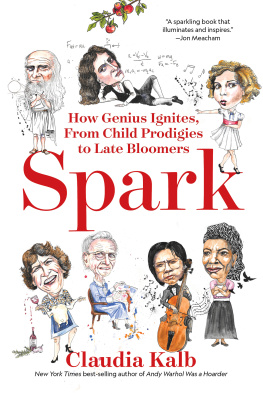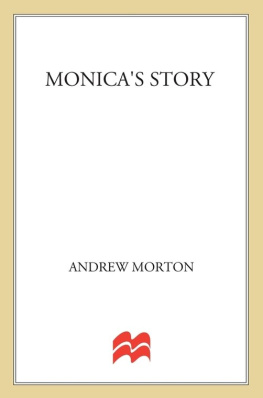Marvin Kalb - One Scandalous Story: Clinton, Lewinsky, and Thirteen Days That Tarnished American Journalism
Here you can read online Marvin Kalb - One Scandalous Story: Clinton, Lewinsky, and Thirteen Days That Tarnished American Journalism full text of the book (entire story) in english for free. Download pdf and epub, get meaning, cover and reviews about this ebook. year: 2010, publisher: Free Press, genre: Politics. Description of the work, (preface) as well as reviews are available. Best literature library LitArk.com created for fans of good reading and offers a wide selection of genres:
Romance novel
Science fiction
Adventure
Detective
Science
History
Home and family
Prose
Art
Politics
Computer
Non-fiction
Religion
Business
Children
Humor
Choose a favorite category and find really read worthwhile books. Enjoy immersion in the world of imagination, feel the emotions of the characters or learn something new for yourself, make an fascinating discovery.

- Book:One Scandalous Story: Clinton, Lewinsky, and Thirteen Days That Tarnished American Journalism
- Author:
- Publisher:Free Press
- Genre:
- Year:2010
- Rating:5 / 5
- Favourites:Add to favourites
- Your mark:
One Scandalous Story: Clinton, Lewinsky, and Thirteen Days That Tarnished American Journalism: summary, description and annotation
We offer to read an annotation, description, summary or preface (depends on what the author of the book "One Scandalous Story: Clinton, Lewinsky, and Thirteen Days That Tarnished American Journalism" wrote himself). If you haven't found the necessary information about the book — write in the comments, we will try to find it.
One Scandalous Story seeks to answer this critical question through the inside story of thirteen days January 13-25, 1998 that make up a vital chapter in the history of American journalism. In riveting detail, Kalb examines just how the media covered the Lewinsky scandal, offering what he calls an X-ray of the Washington press corps. Drawing on hundreds of original interviews, Kalb allows us to eavesdrop on the incestuous deals between reporters and sources, the bitter disagreements among editors, the machination of moguls for whom news is Big Business, and above all, the frantic maneuvering to break the story. With fresh insight, he retraces decisions made by Michael Isikoff of Newsweek, Internet renegade Matt Drudge, Jackie Judd of ABC, Clinton-basher Lucianne Goldberg, Susan Schmidt of The Washington Post, Jackie Bennett of the Office of the Independent Counsel, and other key players in this scandal that veered from low comedy to high drama.
Through the lens of those thirteen turbulent days, Kalb offers us a portrait of the new news in all its contradictions. He reveals how intense economic pressures in the news business, the ascendancy of the Internet, the blurring of roles between reporters and commentators, and a surge of dubious sourcing and copy-cat journalism have combined to make tabloid-style journalism increasingly mainstream. But are we condemned to a resurgence of yellow journalism? Painstakingly documented and sobering in its conclusions, One Scandalous Story issues a clarion call to newsmakers and the American public alike: Journalism can change for the better and must.
Marvin Kalb: author's other books
Who wrote One Scandalous Story: Clinton, Lewinsky, and Thirteen Days That Tarnished American Journalism? Find out the surname, the name of the author of the book and a list of all author's works by series.

